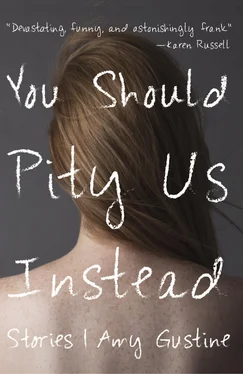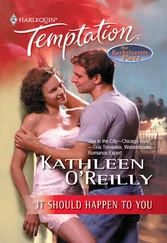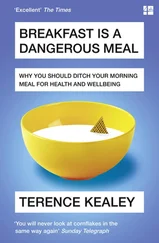Sunday arrived, the maid’s day off. In the morning they went to church, then her father went to his club. That Sunday, after he left, Caroline could hear her mother in the kitchen, pots being set down, a fire starting. Usually they ate leftovers on Sunday, so Caroline wondered what she was doing, but decided to stay in her room, pretending she couldn’t hear.
When her father came home, her mother had already laid the table for dinner. Neither parent had said a word about her marriage all week. Though she hadn’t liked any of the men her mother had chosen, and moreover disliked the very process of their choosing, it occurred to Caroline the alternative to marriage would be staying here, with her parents.
Finished with dinner, her father pushed his chair out from the table.
Her mother tilted her head, drawing out her deaf-softened words. “Before you go…” Her father stopped. The same slight widening of the eyes. Caroline saw in retrospect that he’d already known, just that fast. “I wondered,” her mother continued, “did you enjoy dinner?”
Her father looked at his plate, hardly anything of the meat left. Red meat. Unusual for her mother. Caroline looked at her own plate. Half-eaten. Her mother’s gone completely. Then she knew too. Atlas never went with her father to the club. He wasn’t allowed in.
Caroline ran out the back door, heaving, convulsing, choking on the red chunks of half-digested dog. In the distance, she could hear the slap-slap-slap of the water as the wind moved hard across the river.
Obi didn’t want to go, but he believed there are some things you can’t ask someone else to do for you. One of them is cleaning out the apartment your daughter killed herself in.
So he drove, the mood of a flight too cheerful, the planning too optimistic. The rules too absurd. He feared what he might do if a flight attendant instructed him to put his seatback in an upright position. Even the word “trip” angered Obi. He was going somewhere, but he wasn’t taking a trip.
He climbed in his car on a Saturday morning and drove for four days at the speed limit, not below or above by even a single mile per hour. The navigation system’s mellifluous, vaguely foreign voice, like a Swede who’d grown up with an American parent, kept him company only rarely. At five p.m. on Tuesday, Obi entered the outskirts of Phoenix, the sun a circle of heat on his right cheek until he took Highway 10 and it fell behind, chasing him down the walled expressway. Camelback Mountain, whose name he didn’t know or care about, filled the windshield like a giant’s boot in his path.
Obi and his wife Karen had been in Phoenix one other time, three years ago, when they drove from Toledo to Columbus, helped Jolly load the U-Haul, then made the slow journey west and south so she could start a new job. Jolly and Karen rode in Jolly’s car. Obi drove the truck, a nerve-racking clatter-box with poor sight lines and a soft clutch that brought back the worst days of his life.
As they crossed the country, Obi’s girls got off the freeway for fruit stands and flea markets, then caught up and sped past him, smirking kindly at his white-knuckled, right-lane progress. With every mile Obi prayed, and when he finally pulled into the Phoenix U-Haul, he resolved never to make such a grueling trip again. Staring now at the circle of sun in his rearview mirror, Obi realized that during this journey his habitual terror of driving had been entirely absent. His punishment had already been meted out, after all. No need to continue expecting it.
Still, the mountain unnerved him. No matter where he turned, it stood in his sight line as if it had something to say, but preferred to wait at a discreet distance until the time was right. Obi had lived his whole life in northern Ohio, where the sky remained above, as it should, and it took only twenty minutes driving any direction to see the earth’s round profile shrink to a line of green, brown, or gold depending on the season. Here, the sky reached down and pulled the land up around the city like a knife raises a scar. That’s what mountains were, Obi thought, a cicatrix on the planet. He glanced in each side mirror and saw more of them, thinking for the first time in many days about his own preferences. He preferred fewer reminders of the history of collisions and fractures.
“We need a psychologist sympathetic to rapists.”
“I’m not a rapist.”
“But that’s what the prosecutor’s going to be saying, and we need a psychologist who’s able to present a more…” The lawyer Brian’s father had hired paused, searching for the right word. Brian wished he wouldn’t; he wanted to hear the man’s disgust. “…a more nuanced portrayal of the situation. What we need is a person who can credibly explain to the jury the difference between…” The lawyer stopped again.
“Fetish and pathology?” Brian offered, clamping the phone between his jaw and his shoulder to lean down and pull out the cuffs of his jeans. They had become squashed inside the corner pocket of a fitted sheet during the dry cycle. Smoothed, the denim looked like rice paper, crisscrossed with fold lines.
“Yes,” the lawyer agreed. “The danger in cases like this is that the jury will equate one type of behavior that is”—here he hesitated long enough for Brian to get out the word “aberrant”—“unfamiliar,” the lawyer corrected. “We want them to make a clear distinction between two very different types of unfamiliar behavior.”
Brian stood by his apartment’s patio door. Outside, a metal balcony clung to the lumpy stucco wall. He’d secured a director’s chair to the balcony’s railing with tie wraps, though the desert wind seemed less inclined to take things away than the gusts in his native Chicago. The frigid blasts off Lake Michigan reminded truck drivers and ad execs that everything has its foe. The desert seemed less foe than abyss; it wouldn’t come and get you, but you might fall into it.
“We’ll talk more after I get a psych eval lined up.” The lawyer cleared his throat and the scratch of a fine-point pen on paper traversed the phone line. Brian stepped to the right for a better view of Jocelyn’s car in the parking lot. It hadn’t moved. The front left tire remained at an odd angle, nearly ninety degrees to the wheel well.
The lawyer said, “We want to be careful because we don’t want the evaluation done until we know what it’s going to show.”
From his father, also an attorney, Brian recognized this cornerstone of legal theory — only ask questions you already know the answer to. Increasingly, it struck him as a good policy for life in general.
“So I’ll call you,” the lawyer said. “And don’t do anything between now and then, all right? I mean, don’t go out drinking or ask anyone on a date. Just daily necessities. Nothing special, all right?”
“Yeah, okay.” Brian hung up and went out on the balcony. Over the two years since he’d moved in, the director’s chair had faded from navy to a dusty shade the color of old blueberries. He sat down.
Next door, Jocelyn’s balcony looked the same as yesterday, and the day before and the one before that. The plants, a group of cacti in staggered-height pots, didn’t divulge her absence. Even in containers and with temperatures over a hundred, cacti could go weeks without water. What worried Brian was her red bathing suit. It was Jocelyn’s favorite, and it wasn’t like her to leave it outside for days at a time, and yet it had been there ever since Brian returned from his last flight. Snagged on the spines of the tallest plant, its bright gold stars had tarnished to brass under the July sun.
Brian listened for movement or voices from her place. Hearing nothing, he leaned over the railing. Through the sheer drape he could make out her armless purple couch and yellow chair. The sun blinded him from the rest.
Читать дальше












